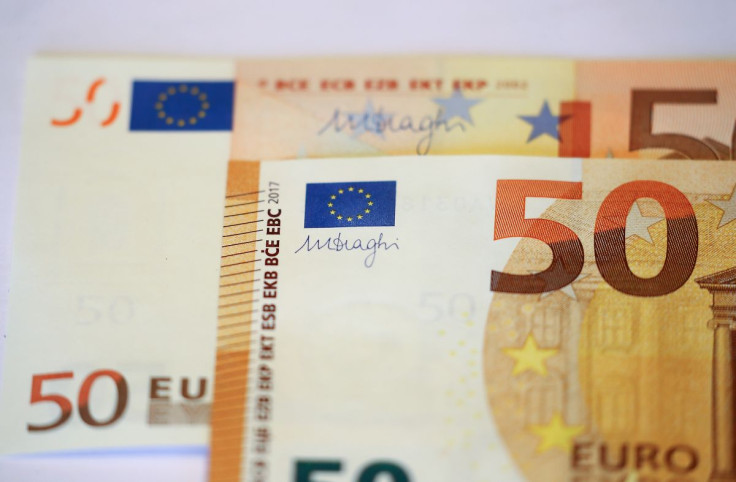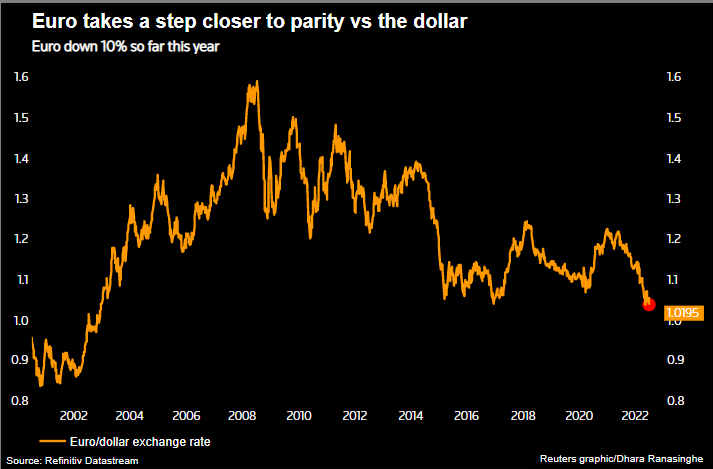Stocks Climb With Treasury Yields, Sterling Rises

U.S. equities rose with Treasury yields on Thursday as investors bet on economic light at the end of the Federal Reserve's rate hiking tunnel, while oil prices rose on supply concerns and sterling rallied as UK Prime Minister Boris Johnson resigned
In foreign exchange markets, the euro edged closer to parity with the safe-haven dollar, which rose slightly against a basket of major currencies. [FRX/]
Sterling jumped after Johnson resigned under pressure from his own political party following a string of resignations and scandals. On Wednesday, the pound had hit its lowest since March 2020.
On Wall Street the technology heavy Nasdaq led gains with chip stocks outperforming as investors took a risk-on tone after Samsung reported strong results.
"What I'm seeing is optimism that perhaps the Fed rate hiking program will not result in dire consequences for the economy. We've economically sensitive stocks leading the way higher today with higher oil prices and interest rates," said Jack Ablin, chief investment officer at Cresset Capital in Chicago.
"It looks like investors are saying this is on economic growth, not necessarily inflation. Otherwise the market should be down."
Comments from Fed officials helped the mood with Governor Christopher Waller calling U.S. recession fears "overblown." He signaled for a July 75-basis-point interest rate hike followed by a 50-basis-point hike in September, and possibly 25 after that unless inflation persists.
St. Louis Fed Bank President James Bullard said he sees a "good chance" of a soft landing for the economy.
The U.S. central bank holds its next policy-setting meeting on July 26-27. Minutes from the June meeting released on Wednesday showed that at the time policymakers discussed how a more restrictive stance might be needed if elevated inflation persisted.
Investors expected an eventual pause in rate hikes.
"The primary thing right now is the direction of Treasury yields. It's giving folks a reason to believe the Fed is close to its end point in raising interest rates. That's giving the market some confidence to step in and buy growth stocks that had been beaten down," said Robert Pavlik, senior portfolio manager at Dakota Wealth, also citing recent declines in commodity prices.
The Dow Jones Industrial Average rose 346.87 points, or 1.12%, to 31,384.55, the S&P 500 gained 57.54 points, or 1.50%, to 3,902.62 and the Nasdaq Composite added 259.49 points, or 2.28%, to 11,621.35.
Earlier, the pan-European STOXX 600 index closed up 1.88%. MSCI's gauge of stocks across the globe gained 1.57% and emerging market stocks rose 1.43%.
During the session, the euro hit its lowest point against the greenback in two decades, edging closer to parity, a level it has not reached since December 2002.
The dollar index rose 0.019%, with the euro down 0.23% at $1.0158.
The Japanese yen weakened 0.04% at 136.00 per dollar, while Sterling was last trading at $1.2021, up 0.76% on the day.
Bank of England policymaker Catherine Mann said central banks should move quickly and aggressively when raising interest rates.
(Graphic: Euro/dollar heading towards parity?:

)
TREASURY YIELDS RISING
Treasury yields were higher as investors waited on U.S. jobs data due before the market opens on Friday for clues about the strength of the economy and the Fed's next moves. [US/]
Benchmark 10-year notes last fell 26/32 in price to yield 3.0075%, from 2.911% late on Wednesday. The 2-year note last fell 4/32 in price to yield 3.0285%, from 2.961%.
Oil prices settled sharply higher, rebounding from steep losses the previous two sessions, as investors returned their focus to tight supply.
U.S. crude settled up 4.26% at $102.73 per barrel and Brent finished at $104.65, up 3.93%. [O/R]
Spot gold added 0.1% to $1,740.19 an ounce. U.S. gold futures gained 0.16% to $1,737.60 an ounce.
© Copyright Thomson Reuters 2024. All rights reserved.




















